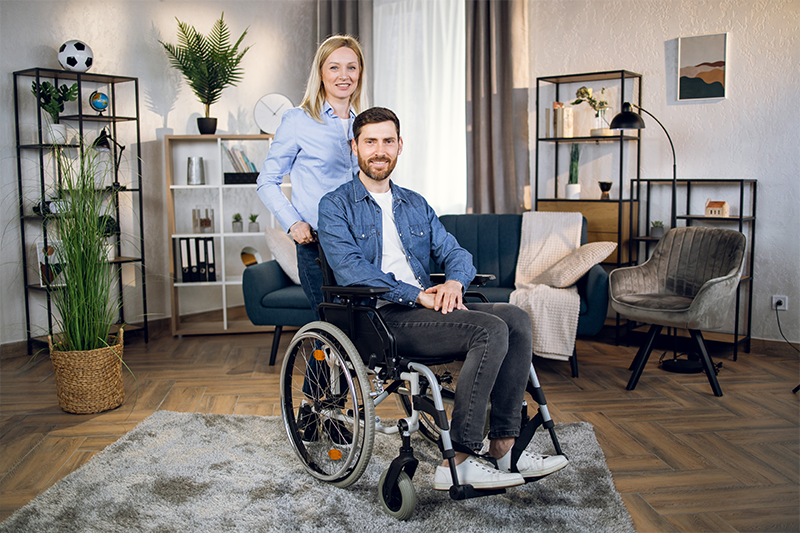How Disability Accommodation Services Are Making Society More Inclusive
Australia’s Disability Strategy 2021 – 2031 wants to make the country more inclusive. The project’s objective is to give every person the same opportunity to participate socially and economically.
Part of that plan includes disability accommodation services. These ensure Australians with disabilities have equal opportunities to participate in all aspects of local and national life.
The NDIS is an essential element in this process. It supports Australians and residents with disabilities to get the subsidised housing services they need to thrive.
Those who qualify may receive funding for Specialist Disability Accommodation (SDA). The NDIS designs this type of housing for individuals with the highest support needs. The scheme offers housebuilders incentives to construct homes with support rails, hoists, stair lifts and other accessories to support independent living.
Disability accommodation services are supports that assist those living in SDA or regular housing to live more purposeful and fulfilling lives. Part of their function is to help the NDIS achieve the Australia Disability Strategy mentioned above, providing a more inclusive environment for all.
It does this through the following means:
Inclusive Housing
As mentioned, the NDIS pushes inclusivity in society by facilitating more accessible housing for those with disabilities. SDA includes features such as ramps, grab bars, and wider doorways to make moving around the home more manageable. Some properties also eliminate door thresholds to allow wheelchairs to move in and out.
SDA modifications depend on the individual’s needs. Authorities create custom plans to reflect their specific requirements, including cognitive impairments.
The benefits of SDA extend beyond quality of life. It also ensures that individuals with disabilities get the necessary support to feel more socially included.
In the absence of SDA, many people with disabilities go into nursing homes or generic social housing. This type of accommodation may discourage visitation by loved ones and social contacts, causing the individual to feel lonely. As such, SDAs have social areas for BBQs, al fresco dining, and gardens. Housing also offers wheelchair-friendly courtyards and facilities that enable easy access to the interior.
SDAs also reduce the burden on the families of affected individuals. The accommodation enables individuals to live more independently without relying on family members for constant support and full-time caregiving.
Employment Support
Disability accommodation services also provide employment support. Aside from providing individuals with a valid address, support workers assist clients in finding and keeping jobs in the local area.
The NDIS views employment support as an essential pillar of its services. It believes work provides individuals with disabilities some independence and a personal source of finance.
Community Integration
Community integration is another essential element of disability accommodation services. Some SDAs are shared. That means individuals with disabilities can live with others and have an immediate sense of community.
Solo accommodation is close to local people, with friendly neighbours available for companionship and support. The NDIS is clear that it is the individual’s choice whether to live alone or in shared accommodation.
Assistive Technologies
Disability accommodation services provide individuals with various assistive technologies for support. Again, these promote independence and inclusion by enabling individuals with disabilities to engage in more diverse activities.
For example, mobility devices can help individuals explore local areas or make trips by themselves to the store. Communication aids can also help with communication with carers, and adaptive computer equipment enables more straightforward internet access.
Transportation Assistance
Services may also include transportation assistance, something the NDIS considers essential. These services enable those living with disabilities to enjoy daily activities.
These include trips to:
- Grocery stores
- Doctor’s surgeries
- Community centres
- Workplaces
- Educational institutions
Transportation services help individuals feel like regular members of the community, enabling them to live more conventionally.
Advocacy
Another critical element of these services is advocacy. Many individuals living with disabilities often need help making their voices heard.
Disability accommodation services help by fighting for their needs on their behalf. Agencies ensure they receive the proper support under their NDIS plan and have sufficient legal protection. Some individuals may miss out on services they are entitled to without advocacy.
Conclusion
SDAs are more than a space to house people. Instead, they are essential tools for ensuring Australia achieves its inclusivity objectives.
Looking forward, the role of SDA will become more central to Australia’s plan to provide suitable housing for people with disabilities. The NDIS states that it wants to give individuals more choice over their accommodation to improve their living conditions.

